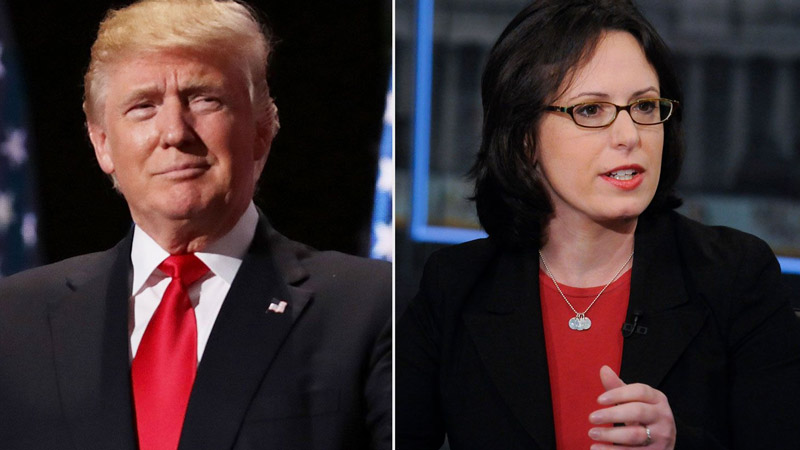In a recent interview, New York Times reporter Maggie Haberman, who has extensively covered Donald Trump over the years, provided insights into his current mindset, describing him as “angrier” and increasingly focused on “revenge” as the campaign draws to a close. During her discussion with CNN anchor Anderson Cooper, Haberman highlighted notable shifts in Trump’s demeanor and rhetoric, suggesting that these changes have become a defining theme of his campaign.
“There’s no question that he is more incoherent, more rambling – he’s older – and so I do think that’s a part of it,” Haberman explained, adding that recent events have further impacted Trump’s outlook. According to her, “Six months ago was before the assassination attempt in Butler, and it was before President Biden dropped out of the race.
And I think that those were two seminal moments for Donald Trump.” These events, she believes, have intensified Trump’s tone and outlook, casting a more somber shade over his campaign messaging. Comparing Trump’s current campaign style to his earlier runs, Haberman noted there is no “marked huge difference in who he was eight years ago as a person as to who he is now.”
However, she observed that his language has darkened, and his speeches convey a greater sense of anger and a distinct focus on retribution, which she finds striking. “The language is darker now, he seems angrier, and he seems a little more focused on talking openly about revenge than he was earlier this year – more than a little,” she remarked. “And that I am struck by, especially as a closing message.”

This focus on revenge as a central theme has reportedly raised concerns among some in Trump’s campaign. Haberman shared that his team has tried to persuade him to shorten his campaign speeches, which she said currently average around 82 minutes. “They’re concerned about some of the rhetoric and whether it will turn people off. They have been this whole time,” she noted.
The campaign fears that lengthy, incendiary speeches could alienate undecided voters or moderate supporters who may be put off by an overt focus on retribution. Haberman’s assessment offers a deeper look into the dynamics behind Trump’s current campaign strategy. As the election approaches, Trump’s willingness to openly discuss grievances and perceived enemies has intensified, reflecting a candid and, at times, confrontational tone that differs from his previous campaigns.
While Trump has always been known for his blunt rhetoric, Haberman’s observations suggest that this iteration of his campaign is characterized by a stronger, more pointed drive for retribution against those he perceives as adversaries.
With Trump’s campaign officials reportedly concerned about the effect of his rhetoric on potential voters, the balance between energizing his base and maintaining broader appeal becomes crucial in these final days. Haberman’s insights shed light on this balancing act, revealing that while Trump’s fiery approach may rally his most loyal supporters, it could also risk alienating key voter segments if his language is perceived as too divisive.
As the campaign’s closing days unfold, Haberman’s account underscores the tone of Trump’s message as a significant aspect of his re-election bid. Her comments illustrate a candidate who, in her words, is more “angrier” and openly focused on “revenge,” creating a starkly different tone compared to previous campaigns and potentially setting the stage for voter reactions as they head to the polls.

